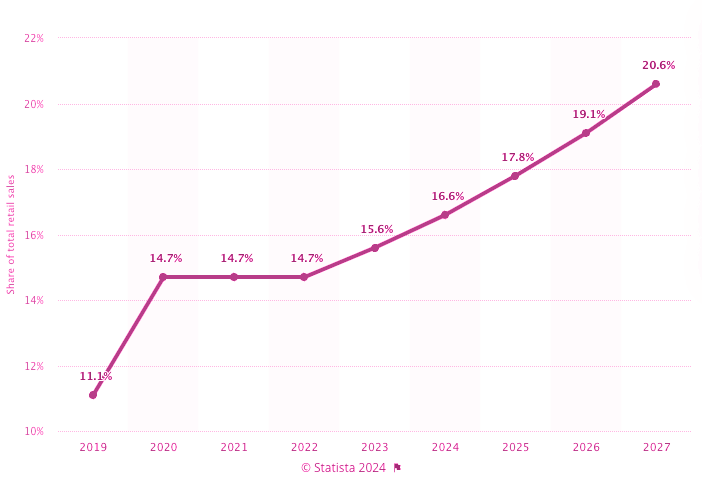Ecommerce APIs: What They Are & How to Choose the Best One for Your Business
In the digital age, the ecommerce industry is constantly evolving, driving brands to seek new ways to enhance their operations, improve customer experiences, and streamline their processes. At the heart of this evolution lies the power of ecommerce APIs (Application Programming Interfaces).
These tools are pivotal in building a seamless, efficient, and scalable online store—and unifying all of your backend processes so you can achieve complete visibility over and operate according to a single source of truth for inventory, order, and customer data (as well as any other ecommerce data you may collect).
This blog explores the essence of ecommerce APIs, the varied types of APIs, and how choosing the right ones can significantly benefit your business. We'll also delve into how Extensiv's solutions facilitate seamless API integrations, elevating your ecommerce platform to new heights.
What is an ecommerce API?
Ecommerce APIs are sets of protocols that enable different software applications to communicate and share data with each other. APIs work like bridges, allowing your ecommerce platform to seamlessly connect with other services and tools, from payment processors and shipping services to customer relationship management systems (CRMs), to ‘get’ valuable real-time data and update information across your ecommerce technology stack automatically. By leveraging APIs, businesses can create a more cohesive, integrated, and automated ecommerce ecosystem, enhancing both operational efficiency (by eliminating manual data transfer and reducing errors) and the customer shopping experience.
Different Types of Ecommerce APIs
Ecommerce APIs come in various forms, each serving specific functions within the ecommerce ecosystem:
- Payment Gateway APIs: These APIs connect ecommerce platforms with payment processing services, enabling seamless transactions with superior authentication and security for your ecommerce store. These significantly boost your customer experience particularly when enabling a variety of payment options such as buy now, pay later (BNPL) in addition to credit cards.
- Shopping Cart APIs: These facilitate the creation and management of online shopping carts, ensuring a smooth checkout process for customers.
- Fulfillment and Shipping APIs: These APIs integrate with shipping carriers and logistics services and systems—including warehouse management system (WMS) software and order management tools—automating shipping calculations, label printing, and tracking updates to streamline the order fulfillment process.
- Product Information Management (PIM) APIs: PIM APIs manage your product catalog and pricing across multiple platforms and channels, ensuring consistency and accuracy. They also make it much easier for you to add new products across all selling channels at once.
- Inventory Management APIs: These APIs track stock levels in real time by the SKU, updating inventory across all sales channels—whether your own ecommerce site or marketplaces like Amazon, Etsy, eBay, etcetera—to prevent over-selling.
- Marketplace APIs: Marketplace APIs connect your platform to major online marketplaces, expanding your reach and sales opportunities compared to just selling on your own ecommerce website.
- Social Media APIs: These APIs integrate social media functionalities into your ecommerce platform, enhancing marketing and customer engagement efforts. Additionally, with the continued rise of social commerce, social media APIs are especially useful for opening up new sales channels.
The Importance of Synchronizing Your Ecommerce Technology Stack
As digital sales continue to grow—with ecommerce expected to make up over 20% of all retail in the U.S. by 2027—the need for a synchronized technology stack becomes increasingly critical. Integrating your ecommerce platform with various APIs not only streamlines operations, but it also provides a holistic view of your business, eliminating the struggle of data segmentation from system to system. This synchronization ensures data consistency, reduces manual errors, and enables automated workflows, leading to more efficient operations and better decision-making.

Although the pandemic is practically ancient history and brick-and-mortar retail has forcefully rebounded, ecommerce is still growing (albeit slower than in 2020-21) and may prove to be the future of all commerce. With the rapid pace of technological advancements—like artificial intelligence (AI) and machine learning (ML)—and changing consumer behaviors, having a fully integrated ecommerce ecosystem will be essential for staying competitive, meeting customer expectations, and making adopting cutting edge software technologies much easier both now and in the future.
The 5 Best Ecommerce APIs for Your Business
Selecting the right APIs for your ecommerce business depends on several factors, including your specific needs, the size of your business, and the platforms you use. Some of the top recommended ecommerce APIs include:
Shopify API

The Shopify API provides extensive access to information about your Shopify store, including order data that can feed into your fulfillment software systems, enabling custom integrations with your existing business processes and applications. The Shopify API is ideal for businesses seeking streamlined order management, accurate inventory control, and seamless tracking across multiple platforms.
WooCommerce API

The WooCommerce API allows developers to create, read, update, and delete data on a WooCommerce store, facilitating custom storefronts and integrations. The WooCommerce API is ideal for ecommerce businesses of all sizes—including startups, established retailers, and unique brands—aiming for streamlined order processing, accurate inventory management, and efficient tracking across diverse sales channels.
Magento API

Magento, now Adobe Commerce, is a flexible and scalable open-source commerce platform written in PHP that lets you create uniquely personalized B2B and B2C front-end experiences. The Magento API allows developers to design and manage their digital storefronts.
Amazon Seller Central API

The Amazon Seller Central API offers access to Amazon's vast marketplace, enabling sellers to automate listings, orders, payments, and more. The Amazon API is best suited for businesses (from growing ecommerce stores to established retailers) that operate on Amazon Seller Central and are looking to enhance their order management, inventory synchronization, and shipment tracking capabilities.
Salesforce API

Unique compared to the other top ecommerce APIs on this list that all connect to sales channels, the Salesforce API offers access to what is largely considered the world’s top CRM system for sales, service, marketing, and more that helps ecommerce businesses stay on top of their revenue generation.
When choosing APIs, consider those that offer scalability, flexibility, and strong support to ensure they can grow with your business and provide the functionalities you need for the long haul.
Challenges with Ecommerce APIs
Integrating ecommerce APIs can present challenges, such as compatibility issues, data synchronization problems, and maintaining security... and that’s after you get your APIs coded. Leveraging ecommerce APIs often requires IT experts to set up or manage each connection, which is extremely resource-intensive and can be unobtainable for smaller or growing brands. If you struggle to comprehend json logs or have trouble differentiating SOAP and REST APIs, you are far from alone.
Implementing a robust password manager like Psono can also mitigate security risks associated with managing multiple API connections. With a password manager in place, businesses can securely store and manage API credentials, reducing the risk of unauthorized access and data breaches.
The Solution to Ecommerce API Challenges
Integration Platform as a Service (iPaaS), a concept introduced by Gartner, emerges as a vital solution for integrating your ecommerce ecosystem without the challenges of traditional, custom APIs. iPaaS, a cloud-based platform enabling the efficient coordination of data and applications, plays a critical role in integrating diverse data sources into unified workflows. Driven by the widespread adoption of SaaS applications, legacy system upgrades, and digital transformation efforts, iPaaS supports ecommerce businesses in creating, managing, and executing integration flows without all the heavy lifting of custom development.
How Extensiv Improves Your Ecommerce Technology Stack Connectivity
Extensiv addresses the challenges of connecting your various ecommerce platforms with an iPaaS solution that simplifies API integration, ensuring seamless interoperability throughout your ecommerce ecosystem. With Extensiv Integration Manager, you can say goodbye to API update headaches—Extensiv manages them for you (and far more efficiently and securely than coding your own APIs from scratch).
Extensiv Integration Manager streamlines the process of connecting your ecommerce platform with hundreds of essential APIs (and counting!) across a multitude of different system types. By utilizing Extensiv, you can easily integrate your platform with payment gateways, shipping services, inventory management systems (such as Extensiv’s warehouse management solution for merchants and retailers), order management systems (including Extensiv’s order management platform), and more, without the need for extensive coding.
Interested in learning more? Sign up for a free trial today!
-
You’ll read about:
Be the first to know
Subscribe to our newsletter






